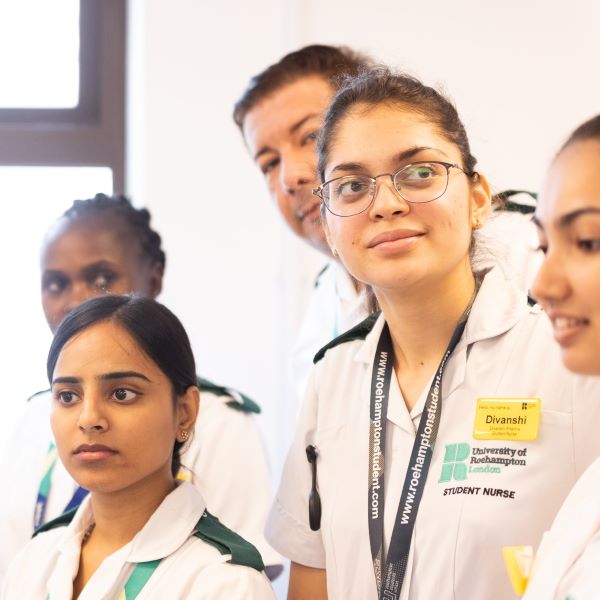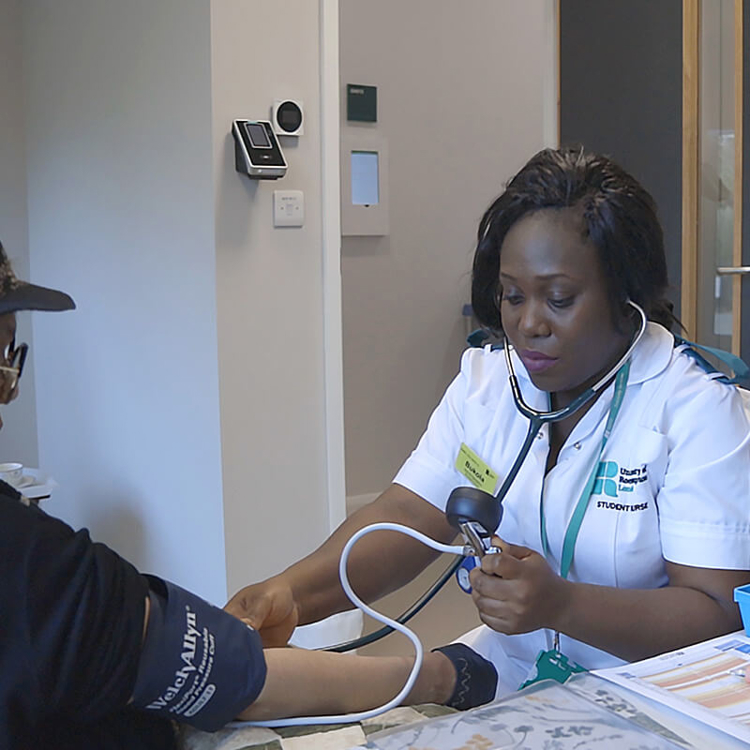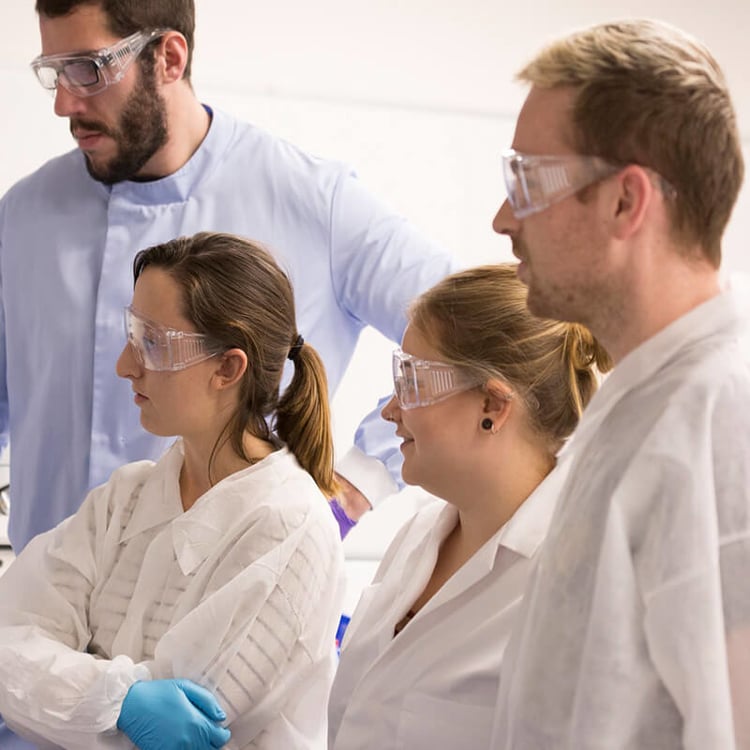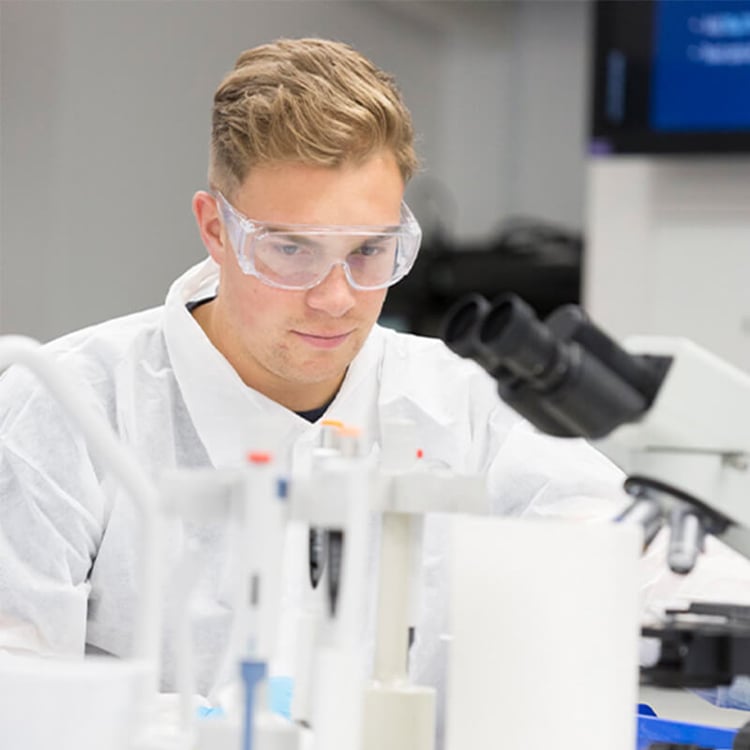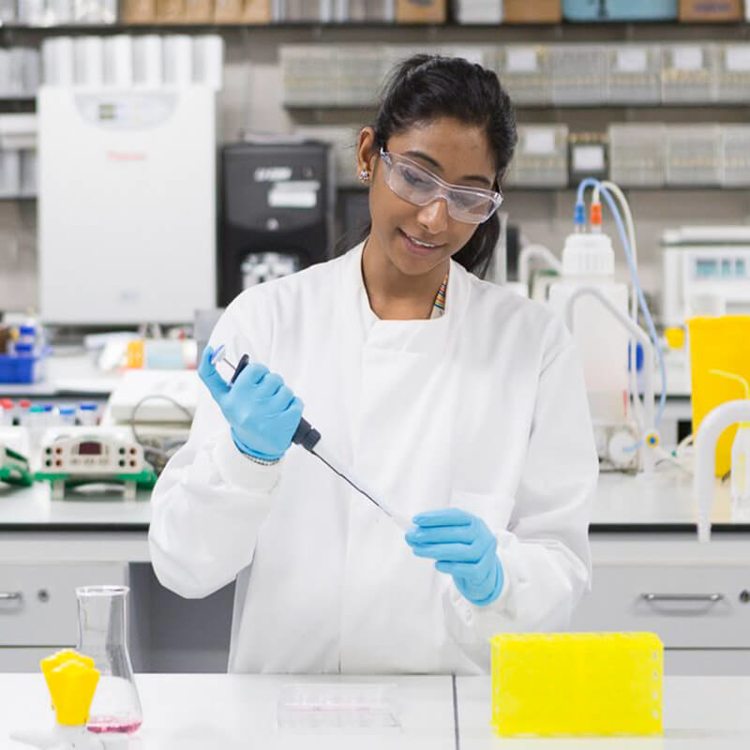Entry tariff:
112–128 UCAS points (or equivalent)
UCAS Codes:
To apply for Roehampton campus, add B730 (no additional codes needed)
To apply to Croydon University Centre, on your UCAS application select campus code 'C' when adding Roehampton (R48) and BSc Children's Nursing (B730)
Start date(s):
September 2025
September 2026
Learn to provide outstanding care for children and young people and develop the skills and knowledge for a rewarding career in children’s nursing. You can choose to study this course at two locations: our main campus in Roehampton, or at Croydon University Centre.
Did you know?
On successful completion of this course, you will be eligible to apply for registration as a Children's Nurse with the Nursing and Midwifery Council (NMC).
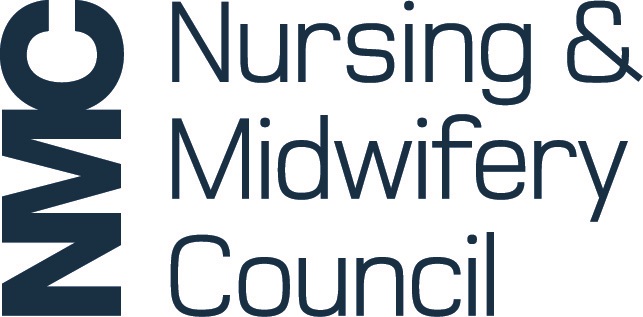
2nd in the UK for student satisfaction in Nursing
(Complete University Guide 2025)

Ranked 1st in London for Assessment and Feedback, Academic Support and Student Voice
National Student Survey 2024 for Adult Nursing

Top 10 in the UK for Nursing
(Guardian University Guide 2024)

Advance your skills in acute children’s care through simulation, clinical assessment, and interdisciplinary teamwork. Learn to manage complex conditions, communicate effectively, and respond to emergencies. Explore pain management, co-morbidities, pharmacology, and safeguarding while developing resilience, risk assessment, and person-centred care planning across diverse and challenging healthcare scenarios.
Deepen your understanding of long-term conditions in children’s nursing through holistic, person-centred care. Explore biopsychosocial assessment, trauma-informed approaches, and evidence-based management. Develop skills in care planning, pharmacology, and interdisciplinary collaboration while engaging with lived experiences to support recovery, self-management, and wellbeing across complex, co-morbid health journeys.
Strengthen your research skills to support evidence-based children’s nursing. Learn to critically appraise research, explore digital tools and AI, and plan a scoping review. Collaborate across professions, engage with service users, and apply ethical, person-centred research to improve care quality, outcomes, and service delivery in healthcare settings.
Enhance your clinical confidence through advanced simulation in children’s nursing. Develop skills in emergency response, mental health assessment, end-of-life care, and patient safety. Engage in interprofessional learning, quality improvement projects, and hands-on practice in diagnostics, IV therapy, and medicine management—preparing you for complex, real-world healthcare scenarios.
These are the current planned modules on this course and may be subject to change.
Prepare to lead integrated, person-centred care for children with complex needs. Develop advanced clinical reasoning, coordinate multi-agency care, and navigate ethical, legal, and policy frameworks. Strengthen your leadership, communication, and decision-making skills while promoting recovery, autonomy, and safety across secondary and tertiary care settings.
Prepare for professional registration with confidence. This module develops leadership, accountability, and delegation skills for managing patient care. Explore ethical decision-making, supervision, resilience, and team dynamics. Gain insight into governance, conflict resolution, and professional development—equipping you to lead safe, inclusive, and effective care in complex healthcare environments.
Apply your learning to real-world challenges in children’s nursing through an independent capstone project. Strengthen your research, problem-solving, and communication skills while designing evidence-based solutions. Collaborate across disciplines to deliver impactful service improvements or community initiatives aligned with professional standards and your future nursing career.
Consolidate your clinical and leadership skills through advanced simulation. Tackle complex scenarios involving patient safety, bereavement, and ethical challenges. Practise leading care, managing feedback, and navigating difficult conversations. Prepare for preceptorship with immersive simulations, interprofessional collaboration, and hands-on experience in diagnostics, medicine manement, and supervising others
These are the current planned modules on this course and may be subject to change.
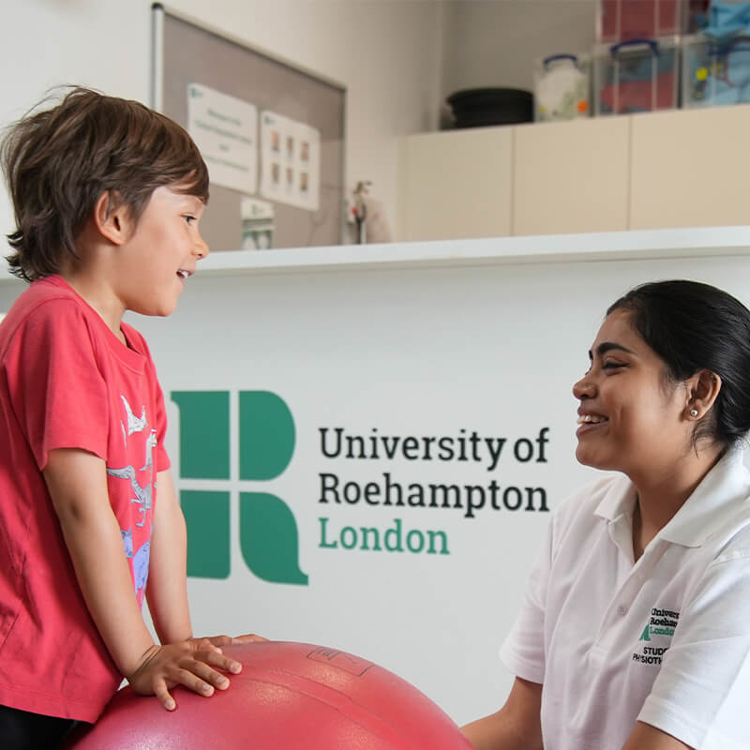
Skills
Build solid foundations for your future career in nursing.
Ranked top 10 in the UK (Guardian University Guide 2024), our BSc Children’s Nursing degree will help you develop excellent care for children, young people and their families.
Working with a dedicated team of experienced clinicians and academics, you’ll gain an in-depth understanding of:
- family-centred care
- the principles of caring for children and young people
- providing complex and critical care for children
- placing equal value on both the physical and mental health of children and young people
With a focus on community and primary care, you will learn how to deliver care in a wide variety of settings, including community settings, hospitals, GPs' practice and schools.
Our priority is ensuring that you graduate with a professional skillset - this nursing degree programme has been designed to meet the Nursing and Midwifery Council standards of proficiency, ensuring graduates are well-prepared for excellence in contemporary healthcare practice. This incorporates:
- health assessment
- planning holistic care
- evidence-based practice
- clinical skills
- medication management
- communication skills
- teamwork
- leadership
During your three years at Roehampton, you’ll demonstrate achievement of the Nursing and Midwifery Council (NMC) standards of proficiency for registered nurses.
You’ll develop the values and behaviours that underpin the NHS Constitution, such as putting service users at the centre of their care and treating people with compassion, dignity and respect.
You’ll also gain the confidence to communicate with a diverse range of people, which is a pre-requisite in the health and care professions.
On successful completion of this course, you will be eligible to apply for registration as a Children's Nurse with the Nursing and Midwifery Council (NMC).
Learning
Enjoy hands-on learning in clinical settings.
This course blends theory with hands-on practice in our classrooms and state-of-the-art Clinical Simulation Centres (CSC).
Under the guidance of sector experts and academics, you’ll participate in:
- Lectures
- Seminars
- Group work
- Online learning
- Reflective practical exercises
You’ll also have the chance to study with healthcare professionals from other fields to gain a comprehensive understanding of nursing today, including:
- Its role within 21st century health and care services
- The shift towards integrated care in the community as part of the NHS Long Term Plan
- The need for evidence-based practice for patient safety
- The importance of developing professional relationships with the people you care for and work with
Throughout your training, we give equal value to physical and mental health to ensure that parity of esteem is a key consideration in care delivery.
You’ll also spend a significant amount of time in our Clinical Simulation Centres (CSC), where you’ll practice skills safely with:
- Other students
- Service users
- Carers
- Role players
- Hi-tech patient simulators
You’ll go on to refine your techniques through a series of real-world placements – learning how to provide exceptional care in a wide range of clinical settings.
During your course, you’ll undertake professional placements to ensure that you’re career ready before you graduate. We have agreements in place with a broad mix of clinical placement partners, including:
- NHS Trusts: St George’s University Hospitals, Kingston Hospital, Epsom and St Helier Hospitals, Croydon Health Services, Imperial College (Hammersmith, Charing Cross, and St Mary’s Hospitals), London North West University Healthcare Hospitals, and North Middlesex University Hospital
- Community health services: Your Healthcare, Hounslow and Richmond Community Healthcare NHS Trust, Sutton Health and Care, Croydon Health Services, and Surrey Heartlands
- Primary care nursing: Sutton, Kingston, Richmond, Croydon, Merton and Wandsworth Training Hubs
- Mental health providers: South West London and St George’s Mental Health Trust, The Priory, Holybourne Hospital, Blackheath Rehabilitation Centre.
- Other: Princess Alice Hospice, St Raphael’s Hospice, Trinity Hospice, Royal Hospital for Neuro-disability (RHND), and care homes.
We also offer this course at our main Roehampton Campus and at Croydon University Centre. You can find out more about the delivery of our course at Croydon University Centre here.
Still have questions about starting a nursing career with Roehampton? Check out our list of FAQs which cover several areas including funding, accommodation and uniforms, and links to further reading.

My name is Debby Hylton and I am a Senior Lecturer in Children’s Nursing, based at the University of Roehampton Croydon campus. I am Module Leader for Introduction to Public Health and Health Promotion (Level 4), Module Leader for Principles of Care for Children and Young People (Level 5) and on the module teams for Pharmacology & Medicines Management (Level 5) and Leading & Coordinating Integrated Care (Level 6). I am the AGT for Sept 23 Children’s Nursing students, and part of the teaching team for Nursing Practice 1. My research areas of interest are public health, global health, adverse childhood experiences and access to higher education for students from the global majority.
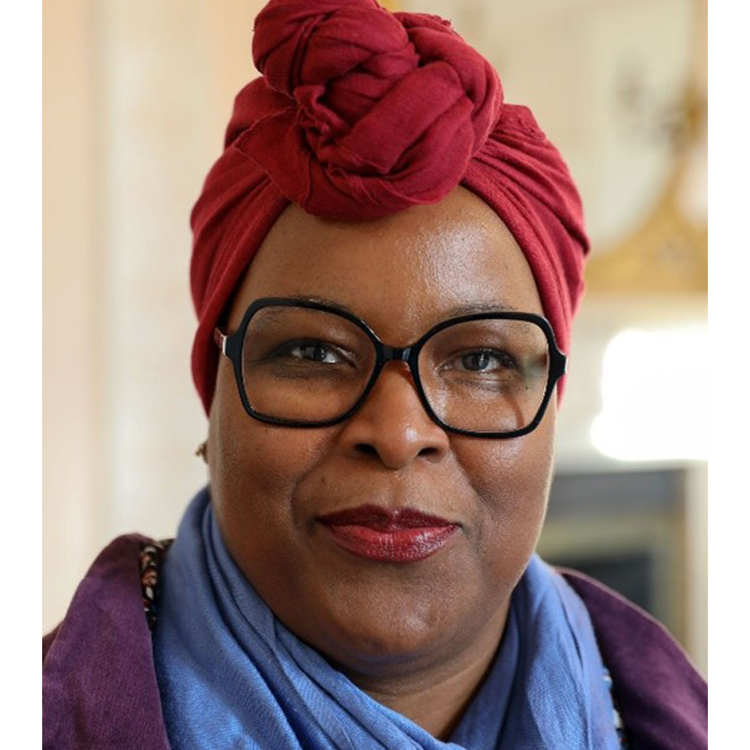
My name is Mariama Seray-Wurie, Associate Professor and Head of Practice Learning for Healthcare Education. I am the lead for practice learning and oversee the management of clinical placements for our healthcare programmes. My background is mainly in pre-registration nursing education and my teaching interests include curriculum development, use of simulation pedagogy within nursing curriculum contributing as an author in nursing topics related to teaching and learning, clinical skills, diversity, inclusivity and cultural awareness within healthcare practice and nurse education. A key part of my role involves working collaboratively with practice learning partners within the NHS and other private, independent and voluntary providers of healthcare to maintain a positive working relationship with partners as they support your learning when you are undertaking practice placement experiences, and I really enjoy talking to students about how you can get the best out of your placement experiences and develop professionally.
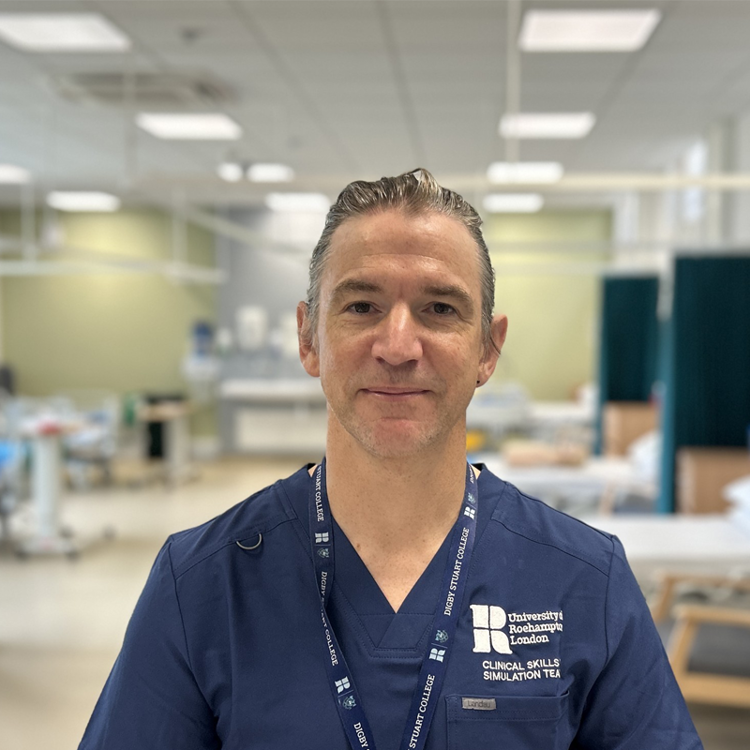
Hi, I'm Luke Cox. I work at Roehampton as a Senior Lecturer in Clinical Skills and Simulation, and I am a registered nurse with a background in Emergency Nursing. I lead the Year 2 skills curriculum for pre-registration nursing students, and I teach on a range of modules for Nursing students and Nursing Associate trainees. At Roehampton we have a range of simulated clinical environments, and one of the things I am passionate about is using simulation to recreate the real situations our students will face in practice - this helps them become safer and more competent practitioners.
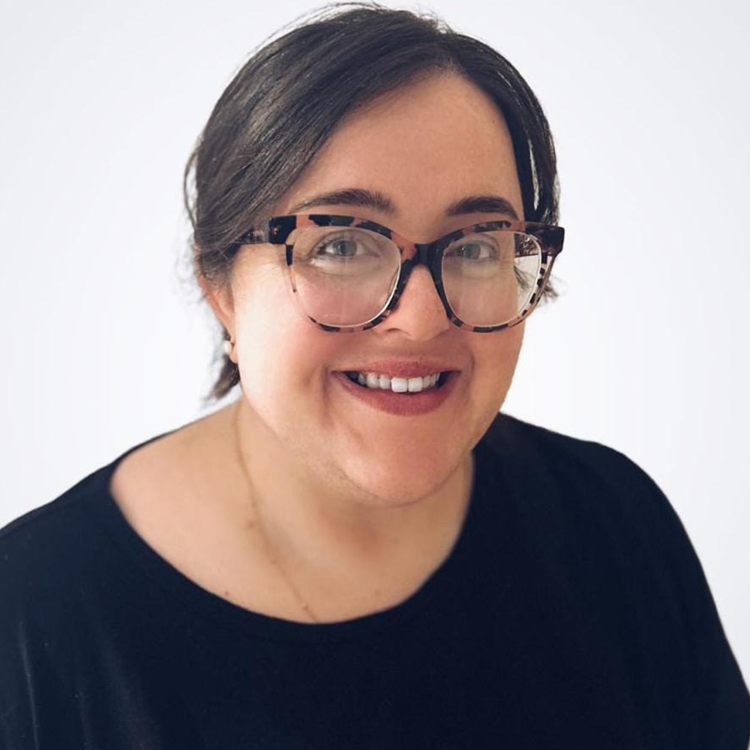
My name is Alison Walton and I am a Senior Lecturer across Child and Adult Nursing here at Roehampton University.
I mainly teach at our campus in Croydon but link in with all our child nursing practice areas. I first qualified as an Adult Nurse but achieved my dual registration in child nursing whilst working within Paediatric ICU. I've been lucky enough to work within many clinical areas before I became a CNS and then transferred into educating new nurses. At Roehampton I lead on the Complex Care for Children and Young People module in Year 2 as well as the Nursing Practice Skills Module for Year 3 for both adult and child students at Croydon. A big part of my role is supporting students in practice and ensuring they feel supported whilst at University too; but the best part of my role is helping students to achieve their potential, and prepare for a career in Nursing and beyond.

Assessment
Hone your clinical skills and academic theory through practical and academic assessments.
During your time with us, you’ll undertake a range of academic evaluations and practice-based assessments. This includes:
- Reflective and case study-based assignments
- Exams
- Presentations
- Safety and quality enhancement projects
Your clinical skills will be evaluated through simulation-based assessments in our Clinical Simulation Centres (CSC).
Your performance and progress will also be measured on placements in various healthcare settings by both clinical and academic staff.
To support you through your studies, we offer in-person and online study support, wellbeing services and careers advice. We also provide financial support for students.
Career
Help shape the future of healthcare and make a meaningful impact on the lives of children, young people and their families.
With a BSc Children's Nursing from Roehampton, you’ll have the skills to succeed in wide variety of settings and roles. For example:
- Community nursing teams (Children's Community Nurse, Health Visitor, School Nurse)
- General Practice Nurse
- Hospices
- Rehabilitation centres
- Hospitals (Wards, A&E, ITU, Outpatients, Theatre)
- Prisons and custody units
- Specialist teams (Respiratory, Oncology, Child Development)
- Research
- Education
Wherever you’re heading, our Careers team will be on hand to help with personal coaching and support from the start of your studies until after you graduate.
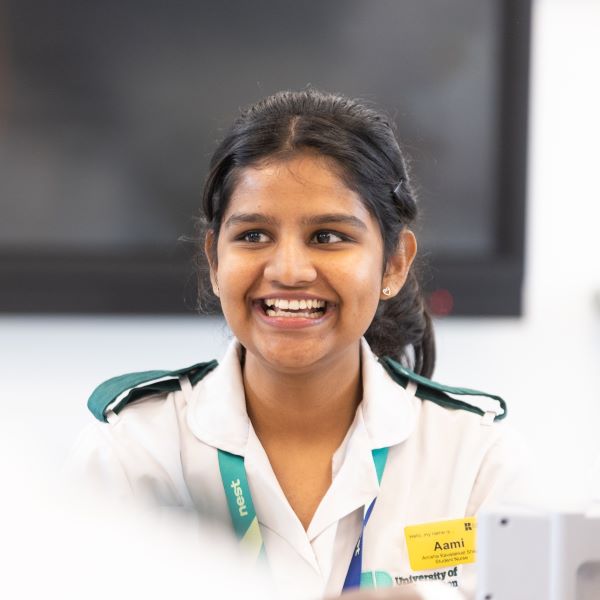
Our careers team is available to support you from the start of your studies until after you graduate. We will help you build your CV, prepare for interviews, and meet and learn from successful graduates working at the top of their careers. You’ll also have opportunities to work with our partners across London and beyond, and to attend a Roehampton jobs fair where you can find out about graduate opportunities and meet employers.
Open days
Get a real taste of our campus, community and what it’s like to study at Roehampton
Applying
Full-time UK undergraduate students apply through UCAS.
Course subject to curriculum review and validation.
Entry tariff
112–128 UCAS points (or equivalent)
Looking to work out your UCAS points or find out about our entry requirements? Find out more.
When we consider applications to study with us, we form a complete view of your achievements to date, and future potential, and can offer flexibility in entry requirements. Find out more about our Contextual Offer scheme.
Specific entry requirements
A levels/BTEC (or equivalent qualification): at least one science or health-related subject.
GCSE (or equivalent) grades 4/C in Maths and English (at least one science subject desirable).
Applicants will also undertake an interview. Successful applicants will need to complete an Occupational Health (OH) Check and an enhanced DBS (Disclosure and Barring Service) Check.
General entry requirements
September 2025 entry tuition fees
UK (home) tuition fees
Undergraduate degree: £9,535
We offer a wide range of scholarships and bursaries. See our financial support pages for UK students.
We also provide other ways to support the cost of living, including free buses and on-campus car parking, hardship support and some of the most affordable student accommodation and catering in London. Find out more about how we can support you.
Nursing students could also be able to recieve non-repayable amount of up to £11,000 per academic year with the NHS Learning Support Fund.
International undergraduate students apply through our direct application system.
Course subject to curriculum review and validation.
Entry tariff
112–128 UCAS points (or equivalent)
Looking to work out your UCAS points or find out about our entry requirements? Find out more.
When we consider applications to study with us, we form a complete view of your achievements to date, and future potential, and can offer flexibility in entry requirements. Find out more about our Contextual Offer scheme.
Specific entry requirements
Applicants will also undertake an interview. Successful applicants will need to complete an Occupational Health (OH) Check and an enhanced DBS (Disclosure and Barring Service) Check.
Non-native English speakers who do not have GCSE English or equivalent at grade 4/C or above require an IELTS score of at least 6.5 in writing and at least 7.0 in reading, listening and speaking, with a minimum overall score of 7.0. Please refer to the NMC website for more details.
General entry requirements
September 2025 entry tuition fees
EU and international tuition fees
Undergraduate degree: £19,500
We offer a wide range of scholarships and bursaries. See our financial support pages for international students.
We also provide other ways to support the cost of living, including free buses and on-campus car parking, hardship support and some of the most affordable student accommodation and catering in London. Find out more about how we can support you.


